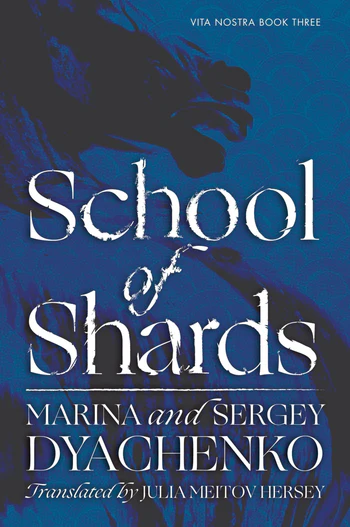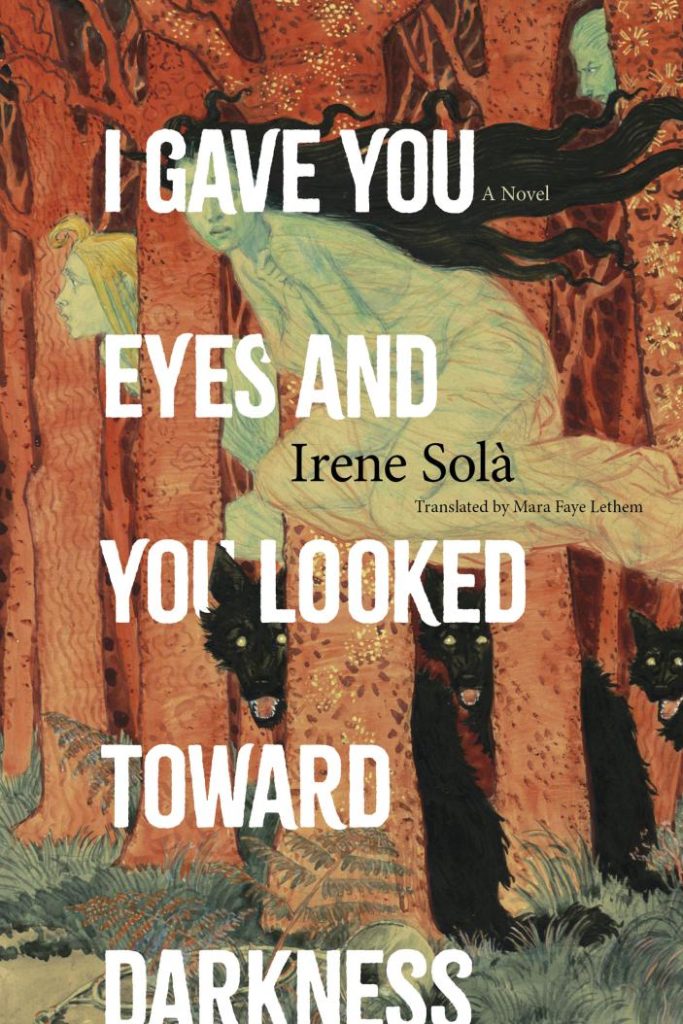
School of Shards by Marina & Sergey Dyachenko, translated from the Russian by Julia Meitov Hersey (Harper Voyager, June 17)
The haunting final chapter of the modern classic Vita Nostra trilogy. The Dyachenkos’ magical dark academia novel brings the story of Sasha to a revelatory climax as she learns to take control of her powers and reshape the world…or destroy it forever.

I Gave You Eyes and You Looked Toward Darkness by Irene Solà, translated from the Catalan by Mara Faye Lethem (Graywolf Press, June 17)
Dawn is breaking over the Guilleries, a rugged mountain range in Catalonia frequented by wolf hunters, brigands, deserters, race-car drivers, ghosts, and demons. In a remote farmhouse called Mas Clavell, an impossibly old woman lies on her deathbed. Family and caretakers drift in and out. Meanwhile, all the women who have lived and died in that house are waiting for her to join them. They are preparing to throw her a party. As day turns to night, four hundred years’ worth of stories unspool, and the house reverberates with raucous laughter, pungent feasts, and piercing cries of pleasure and pain. It all begins with Joana, Mas Clavell’s matriarch, who once longed for a husband—“a full man,” perhaps even “an heir with a patch of land and a roof over his head.” She summoned the devil to fulfill her wish and struck a deal: a man in exchange for her soul. But when, on her wedding day, Joana discovered that her husband was missing a toe (eaten by wolves), she exploited a loophole in her agreement, heedless of what consequences might follow.

New Story of the Stone: An Early Chinese Science Fiction Novel by Wu Jianren, translated from the Chinese by Liz Evans Weber (Columbia University Press, June 24)
One of China’s first works of science fiction, New Story of the Stone is a belated twentieth-century sequel to the beloved eighteenth-century masterpiece Story of the Stone (more famously known as Dream of the Red Chamber). The story follows protagonist Jia Baoyu, borrowed from the original Story, as he is dramatically hurled forward over a hundred years from his own time into a bewildering future: first the decadent semicolonized late Qing China of the author’s own time and later an astonishing high-tech Confucian utopia called the Realm of Civilization.
